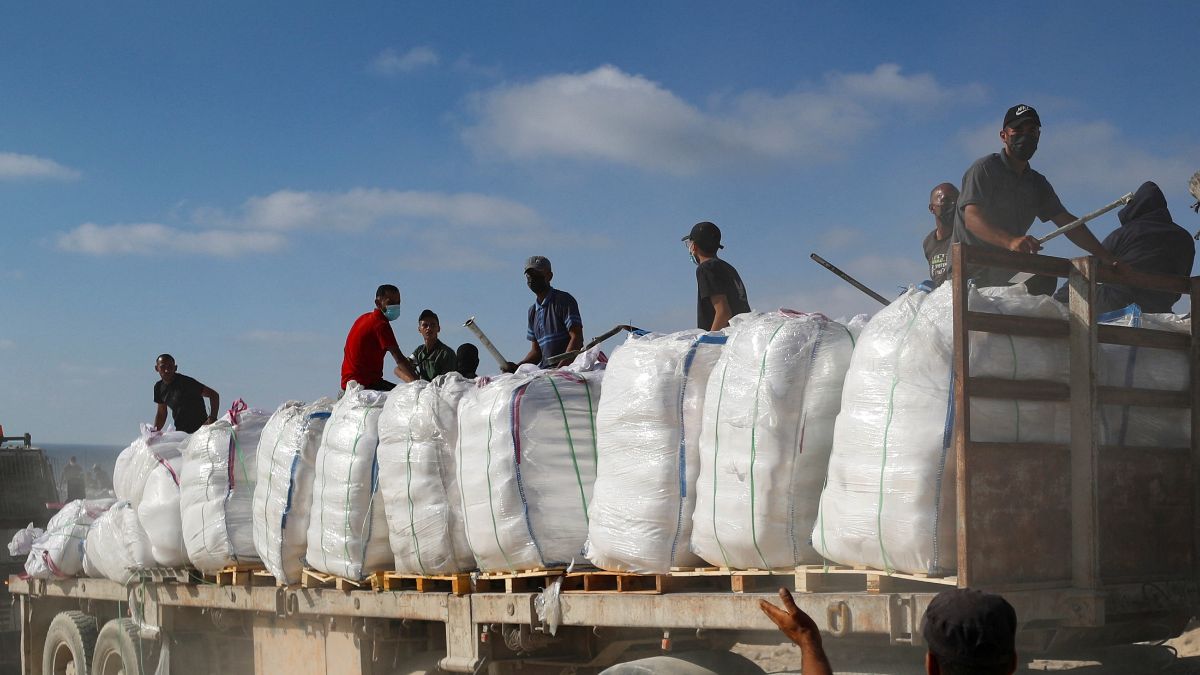How aid delivery centres turn into death traps in Gaza
 Palestinians from clans hold melee weapons to secure an aid truck in Beit Lahia, in the northern Gaza Strip | Reuters
Palestinians from clans hold melee weapons to secure an aid truck in Beit Lahia, in the northern Gaza Strip | Reuters
Controversy is mounting over humanitarian aid deliveries in Gaza, as Israeli strikes continue and a new distribution mechanism backed by the United States and Israel comes under sharp criticism from the UN and other aid organisations.
At least 21 Palestinians were killed today, according to Gaza’s health authorities. Among them were nine people sheltering in a school in Gaza City’s Sheikh Radwan neighbourhood and another nine near a tent camp in Khan Younis. Three more were shot dead while waiting for UN aid trucks in central Gaza. There was no comment from the Israeli military.
Since late May, aid deliveries have been handled largely by the Gaza Humanitarian Foundation (GHF), a new mechanism supported by Israel and the US. Set up to bypass the UN and allegedly prevent supplies from being diverted by Hamas, the GHF operates in coordination with US private security contractors and claims to have delivered more than 44 million meals in just four weeks.
The new mechanism has led to alarm among international aid agencies. The UN and major aid groups have protested the move, refusing to work with the GHF. They say the agency’s operations violated neutrality and were against humanitarian principles. Food distribution points are located within Israeli military-controlled zones where active combat takes place, thereby risking civilian lives.
Since the GHF began operations on 26 May, at least 549 people have been killed and more than 4,000 wounded while attempting to collect aid, according to Gaza’s health ministry. Aid agencies say civilians are being forced to choose between starvation and deadly exposure to gunfire and airstrikes.
James Elder, a spokesman for UNICEF who recently returned from Gaza, said: “So long as a population is denied food, people are being offered this lethal choice and, unfortunately, because it's in a combat zone, it cannot improve.”
The deaths have done little to alter Israeli policy. Israel’s far-right national security minister Itamar Ben-Gvir called today for an immediate and total halt to humanitarian deliveries, accusing Hamas of exploiting the aid.
“The humanitarian aid currently entering Gaza is an absolute disgrace,” Ben-Gvir posted on social media. “What is needed in Gaza is not a temporary halt to the ‘humanitarian’ aid, but a complete halt to it... it gives oxygen to Hamas.”
The GHF’s existence reflects a deepening rift between Western-backed Israeli initiatives and traditional international relief bodies. The US has defended the new mechanism, citing concerns about Hamas's influence over UN-run distributions. But aid experts warn that bypassing long-established structures has only worsened the crisis.
Meanwhile, efforts to restart ceasefire negotiations remain stalled. Although US President Donald Trump claimed “great progress” following recent airstrikes on Iran, both Hamas and Israeli officials said no breakthrough had been reached.
Amid rising civilian casualties and desperate conditions, Elder warned, “No child should have to risk death just to find a meal.”
Middle East